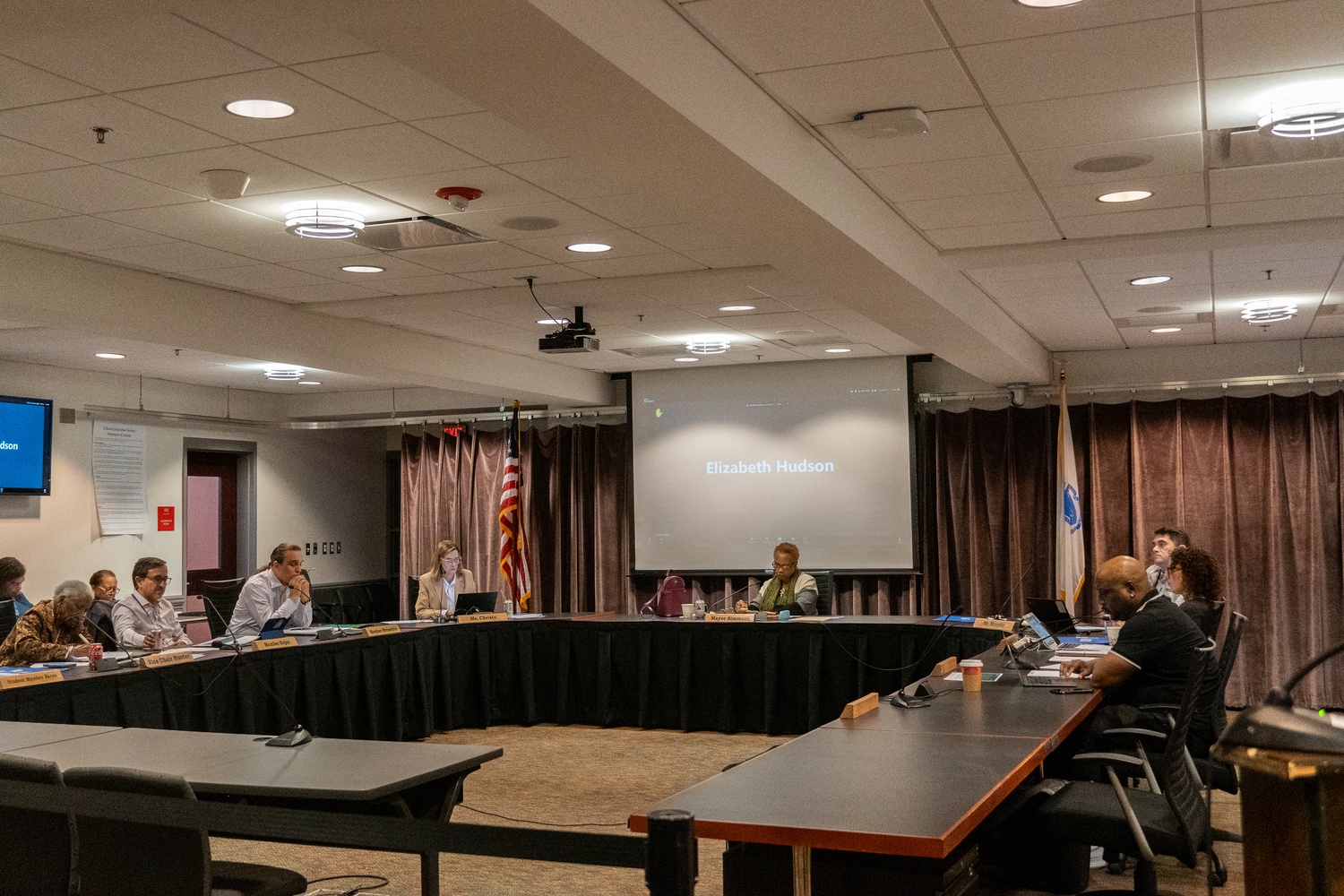
News
CPS Will Adjust Graduation Requirements After Removal of MCAS

News
Cambridge Businesses Brace For Supplier Price Increases From Tariffs

News
As Wu Seeks Reelection, Residents and Officials Praise Her First Term As Mayor of Boston

News
Cambridge No Longer in a ‘Critical’ Drought, City Water Board Announces

News
Climate Accountability Group Calls On Harvard To Cut Ties with Lobbying Firm Connected To Tesla
CPS Will Adjust Graduation Requirements After Removal of MCAS

After a November ballot measure removed the Massachusetts Comprehensive Assessment System as a state-wide graduation requirement, districts are finding new metrics to set graduation standards. For current Cambridge students, not much will change.
The MCAS has long been used as the “competency determination” requirement for students in the state to graduate. Though the test is no longer a graduation requirement in Massachusetts, state and federal law requires all districts in the state to administer the test to collect and provide data on student achievement.
At a Cambridge Public School Committee meeting on Tuesday, committee member Richard Harding Jr. said the MCAS requirement has historically not hindered CPS students from graduating.
“As much as you talked about the MCAS being removed at the state level, it was never a Cambridge issue,” he said, noting that only 37 students in the past 12 years did not graduate because of the MCAS.
On Tuesday, district leadership presented changes to CPS’ “competency determination,” shifting from the MCAS requirement to the fulfillment of 20 credits in each of ELA and Math, and 10 credits in Science.
But to graduate from Cambridge Rindge and Latin School, students are already required to fulfill 40 ELA and Math credits, and 30 Science credits.
While the change will not greatly affect the graduating class, Chad Leith, CPS’s Chief Accountability Officer, said the MCAS removal could have important “retroactive” ramifications for former students. According to Leith, former students who did not pass the MCAS — but otherwise fulfilled their graduation requirements — are now eligible to receive their diploma.
The new competency determinations will be in effect for the graduating classes of 2025 and 2026. Next school year, the district will propose longer term competency determination requirements for future classes.
Leith noted that Massachusetts Governor Maura T. Healey ’92 has formed a council to make state-level recommendations for the new requirements no later than Dec. 1 2025. He said that these recommendations “could eliminate the need for us to develop our own long term approach.”
“We’re looking forward to the report from this council, and that will obviously inform the work that we do and the recommendations that we bring to you,” Leith said.
As state leadership determines future graduation requirements, Interim Superintendent David G. Murphy said that the removal of the MCAS graduation requirement “has created a significant challenge for school districts.”
“If the determination is solely at the local level, then we are essentially the arbiters of our own work,” he added.
Murphy also said that the district has “a responsibility as a school district to keep a close eye on the work happening at the state level.”
“I don’t think we should kid ourselves as to what the implications are for our school district and all others — that there is no uniform standard of competency going forward in the wake of that ballot initiative,” he added.
Dan Monahan, president of the Cambridge Education Association, said eliminating the MCAS requirement benefits students by reducing anxiety that comes from taking the test.
“Not having that level of anxiety is really important in our society, where the anxiety in our young people has increased so dramatically over the last many years,” Monahan said.
“MCAS has dangerously brought us down this path of focusing on the results from a standardized test,” Monahan added.
Monahan added that focusing too much on MCAS has “come at a cost of a lot of other pieces, like social, emotional development, critical thinking — lots of other things that we need to educate our students on.”
Alongside voting to change the competency determination, the School Committee passed a motion to reaffirm the district’s commitment to teacher evaluations. While the motion previously included the addition of two paraprofessional staff, the Committee only agreed to vote in favor of the teacher evaluations.
Murphy clarified that the district has a “regulatory obligation to evaluate all educators.”
“I am under a contractual, regulatory, and ethical obligation to ensure that this happens irrespective of the outcome of this motion,” he added.
“Educator evaluation is a critical, indispensable part of that,” Murphy said. “It is how we as an organization hold ourselves accountable.”
— Staff writer Ayaan Ahmad can be reached at ayaan.ahmad@thecrimson.com. Follow him on X @AyaanAhmad2024.
— Staff writer Claire A. Michal can be reached at claire.michal@thecrimson.com
Want to keep up with breaking news? Subscribe to our email newsletter.
Most Read
- Shots Fired on MBTA Train Near Harvard Square, Harvard Lifts Instruction To Shelter in Place
- No Suspects in Custody After Gunshots in Harvard Square, Cambridge Police Say
- Trump To Cut Another $1 Billion From Harvard Health Research Funding, Wall Street Journal Reports
- White House Officials Say They Sent Harvard April 11 Demands in Error, New York Times Reports
- Harvard School of Public Health Begins Layoffs As Trump Slashes Funding
